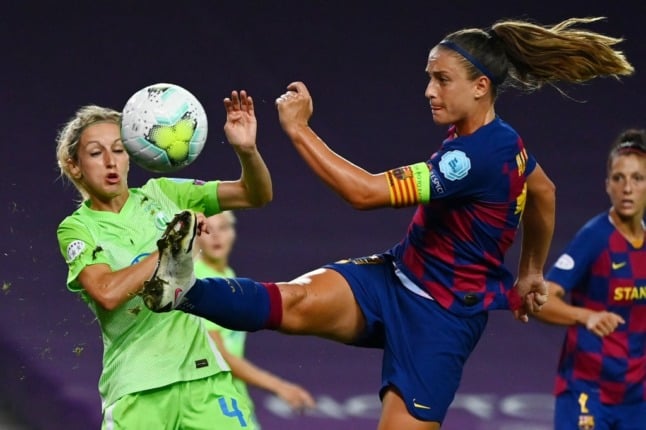The commercial, currently being shown at Swiss cinemas, plays up the supposed SVP-voting savvy of “real” Swiss women, newspaper 20-Minuten reports.
In the ad, three bathing beauties at the Hüttnersee lake in Canton Zürich turn away nauseated from an attractive muscle man the moment he whips out a towel emblazoned with the European Union flag.
The advert closes with a booming voice proclaiming that “real Swiss women vote SVP”.
But the party came under pressure when it emerged that one of the actresses in the advert was of Turkish stock. The SVP defended the decision to employ the dark-haired model, saying that “naturally” it had only used Swiss women since all three held Swiss passports.
In other circumstances, however, the party is often quick to draw a distinction between Swiss and “naturalised foreigners“.
In January, for example, Luzern SVP cantonal minister Pius Müller demanded that it should be compulsory for a person’s migration background to be included in all statistics and when describing criminal offences.
“For many Swiss, is it an insult when it is stated that a Swiss person committed this or that crime and finally it transpires that he was naturalised“, he said at the time.
In the same vein, two months later, the Zürich SVP minister Barbara Steinmann put forward a motion that a differentiation be made in administrative statistics between naturalised Swiss and other citizens.
These calls from Müller and Steinmann are just two in a series of similar arguments made by party representatives. In 2007, a policy document about immigration politics from the SVP in Canton Zürich recommended that police and correctional services must differentiate between “naturalised foreigners“ and Swiss.
And in November 2010, over 52 percent of Swiss voters passed a referendum (Ausschaffungsiniative) to kick foreign criminals, even those born in Switzerland, out of the country. The SVP backed the initiatives, hitting the headlines for controversial campaigns invoking epithets like “Ivan the rapist“ and using the imagery of immigrants as black sheep.




 Please whitelist us to continue reading.
Please whitelist us to continue reading.
Member comments